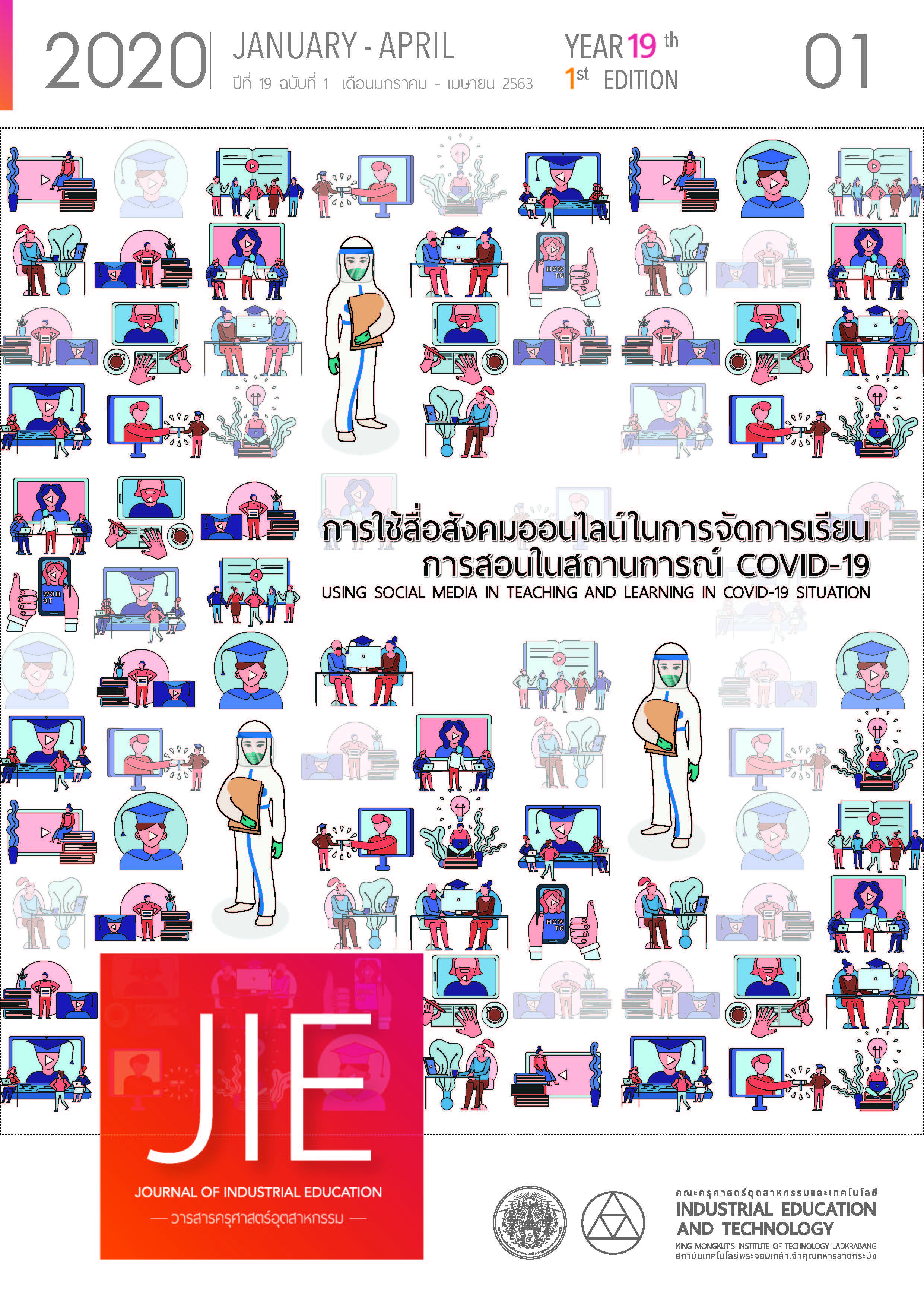STUDY OF THE STATUS OF MATHEMATICS INSTRUCTION RELATED TO MATHEMATICAL MODELING TO SOLVE REAL-LIFE PROBLEMS IN LOWER SECONDARY SCHOOL
Keywords:
Mathematics instruction, Mathematical modeling, Real-life problemsAbstract
The purposes of this research were to study the status of mathematics instruction related to mathematical modeling to solve the real-life problems of students and teachers in lower secondary schools. This research was conducted by studying the following topics: (1) beliefs related to mathematical modeling among students and teachers; (2) the ability to solve the real-life problems of students; (3) the status of mathematics teaching activities via real-life problem solving among teachers. The target group consisted of forty grade eight students in the second semester of the 2019 academic year, including six mathematics teachers at Srinakharinwirot University Prasarnmit Demonstration School (Secondary) and Ramkhamhaeng University Demonstration School (Secondary). The target group were selected using purposive sampling. The research instruments of this study were: (1) beliefs related to mathematical modeling questionnaire; (2) the real-life problem solving abilities test; (3) the status of mathematics teaching activities via problem solving interview form. The data were analyzed by mean and standard deviation. The research results indicated the following: (1) their beliefs related to the mathematical modeling of students and teachers were at a moderate level; (2) when students were assigned to solve real-life problems, they did not give precedence to understanding real-life problems prior to taking action. As a result, they could not find any linkage or relationships between important information or conditions required by real-life problems to find solutions. As a result, students could not set up mathematical models that were suitable for real-life problems. Also, they did not interpret the solutions obtained from the mathematical model into solutions for real-life problems; (3) teachers had a correct understanding of the characteristics of mathematics teaching activities via real-life problem solving. Nonetheless, there were very few teaching activities for students or no such activities had ever been organized.
References
Amporn Makanong. 2559. Mathematical Process Skill : Improvement for Development. Bangkok: Chulalongkorn University Press.
Sansanee Nenthien. 2560. Mathematics Learning with Real-World Problems Based on Mathematical Modeling. Journal of Education Studies, 45(2), p. 238-253.
Hodgson, T. 1995. Secondary Mathematics Modeling: Issue and Challenges. School Science and Mathematics, 95(7), p. 351-358.
Cheng, A.K. 2001. Teaching Mathematics Modeling in Singpore School. The Mathematics Educator, 16(1), p. 63-75.
Janjaruporn, R. 2005. The development of a problem-solving instructional program to develop preservice teachers' competence in solving mathematical problems and their beliefs related to problem solving. Doctor of Education, Mathematics Education, Srinakharinwirot University.
Anderson, R.C. 1984. Some reflections on the acquisition of knowledge. Educational Research, 1, p. 5-10.
Ernest, P. 1989. The impact of beliefs on the teaching of mathematics. London: Falmer Press.
Thompson, A.G. 1992. Teachers’ Beliefs and Conceptions: A Synthesis of the Research. In D.A. Grouws (Ed). Handbook of research on mathematics teaching and learning. New York: Macmillan.
The Institute for the Promotion of Teaching Science and Technology (IPST). 2555. Mathematical Teachers : The Path to Success. Bangkok: 3-Q Media.
Ponernut, T. 2019. The Status of Mathematics Instruction Related to Apply a Mathematical Model to Solve Real World Problems on Applications of Calculus for Enrichment Science Classroom Students in Upper Secondary Level. Veridian E-Journal,Silpakorn University (Humanities, Social Sciences and arts), 12(5), p. 474-492.
Swetz, F.; & Hartzler, J.S. 1991. Mathematical Modeling in the Secondary School Curriculum : A Resource Guide of Classroom Exercises. The National Council of Teacher of Mathematics.
The Institute for the Promotion of Teaching Science and Technology (IPST). 2560. Mathematics Curriculum Guide (Revised edition B.E.2560): The Basic Education Core Curriculum B.E. 2551. Bangkok.
Downloads
Published
How to Cite
Issue
Section
License
"The opinions and contents including the words in papers are responsibility by the authors."
"ข้อคิดเห็น เนื้อหา รวมทั้งการใช้ภาษาในบทความถือเป็นความรับผิดชอบของผู้เขียน"



